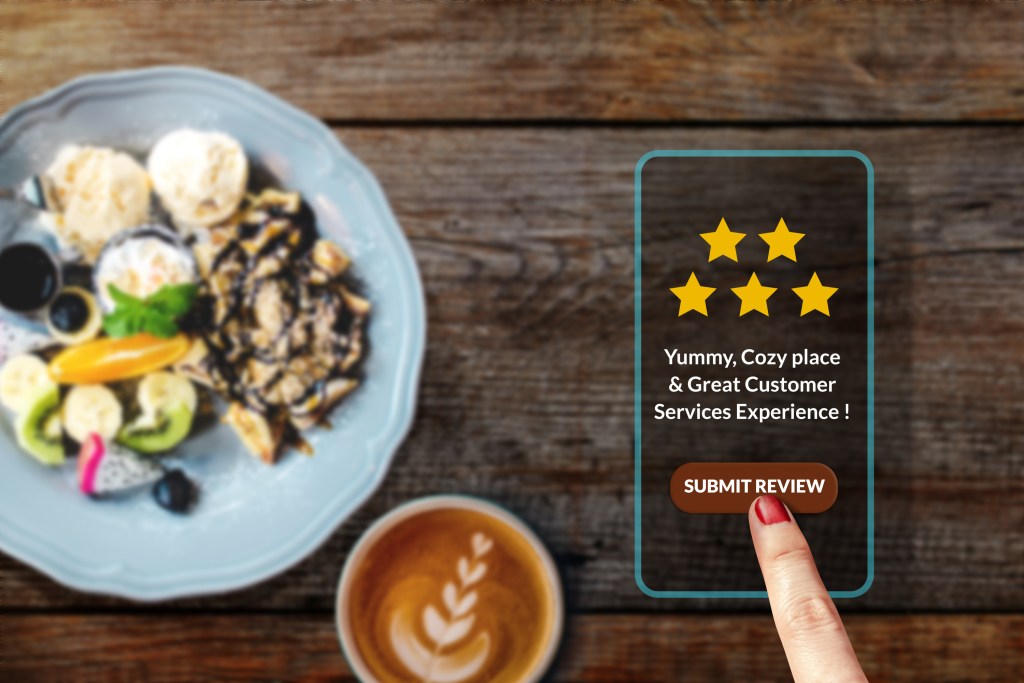In this digital age, everyone’s a critic, especially when it comes to food. That’s why monitoring your business’s reputation on restaurant review sites and food review sites is critical.
Every restaurant loves to see a good review. However, customers are 21% more likely to leave an online review after a negative experience than a positive one. Because of this, restaurants have to work doubly hard to please their customers.
The questions to ask: Where do customers go to leave their reviews, and what websites have the most impact on restaurants? Here are eight websites where people may go to read reviews before visiting your restaurant.

1. Google
There’s no denying that Google yields an enormous amount of power on the internet. Google is one of the first places, if not the only place, people search for a restaurant and read its reviews. In fact, recent statistics show over 60% of people research a business on Google before visiting it.
Google reviews matter not only because of their content but also their quantity. A restaurant with very few reviews on Google, whether good or bad, implies that it doesn’t get much business. In the restaurant industry, that’s definitely not a good thing.
2. Yelp
Yelp is a comprehensive business resource, but many customer reviews are dedicated to eating establishments. Having an active Yelp profile is essential for restaurants, even though the company was exposed a few years ago for predatory business practices.
A good feature that Yelp offers to restaurant owners is the ability to respond to reviews. It’s an excellent way for restaurant owners to reach out to their customers directly and potentially smooth over a negative dining experience.
3. Facebook
Over the years, Facebook has become a valuable resource for restaurants. Many people visit the social media platform to look at pictures, read reviews, and find promotions. Customers can also get in touch with the business directly through its chat feature. Restaurants can also like, respond to, and share reviews.
4. OpenTable
Unlike the three prior websites, OpenTable has always been dedicated solely to restaurants. Over the years, it has gained momentum from being primarily an online reservations hub to a restaurant locator and review site.
The bad news about OpenTable is that it’s not a free service. You have to pay a monthly fee to be a part of its directory of restaurants. The good news is that a day after a customer’s dining experience, OpenTable reaches out to the customer, requesting them to leave a review. This results in more reviews that probably won’t skew as negatively as some free restaurant review sites.
5. Tripadvisor
Tripadvisor is a one-stop app for everything related to travel, including the best places to dine. The app ranks your restaurant not only by the quality of reviews but also by quantity. If you register your restaurant with Tripadvisor, you can respond to reviews and dispute them directly if you feel they are people simply trolling your establishment.

6. Zomato
Formerly Urbanspoon, Zomato has a format very similar to Yelp, but it’s dedicated to restaurants. Zomato is an Indian-based company and people use it much more heavily in Asia and Europe. However, there are still U.S. consumers who use the platform and leave reviews regularly.
7. Trip.com
Trip.com is another travel site that’s very similar to Tripadvisor. Though its usage isn’t close to its main competitor, it is still a platform where restaurant customers can leave reviews.
8. Restaurant Guru
Restaurant Guru is a site that lets restaurant-goers access reviews from all the above platforms in one place (except OpenTable). It’s a convenient website that breaks down restaurants by dozens of categories, including cuisine, atmosphere, service, price, and more. The good news about Restaurant Guru is that it’s a website where owners can access reviews in one place. The bad news is that customers can, too, so if your restaurant is receiving bad reviews, you have a lot of work to do to get them up to par on all the other websites.
Final thoughts on restaurant review sites
Online reviews are what word-of-mouth used to be 20 years ago. The difference is there is no historical record of word-of-mouth. Review sites can be fantastic marketing tools for restaurants. At the same time, they can also be a hurdle to overcome if your business is struggling. The bottom line is, people will always complain about something, even if they have a good experience. By monitoring and responding to both negative and positive reviews, your restaurant can gain a level of respect other restaurants don’t, simply by listening to your customers.



